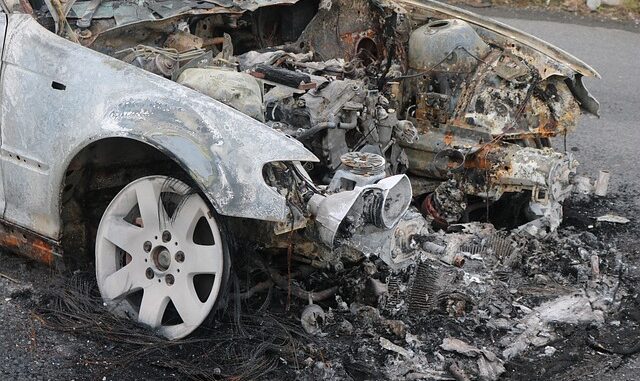
Car accidents can be unsettling experiences, but knowing your responsibilities and legal obligations afterward is crucial. In Ontario, Canada, the law mandates certain criteria for reporting accidents. Understanding when and how to report an accident can help you navigate the aftermath smoothly and ensure compliance with local regulations.
Legal Requirements for Reporting Accidents
In Ontario, you are required to report a car accident if:
- Damage Exceeds $2,000: You must report the accident to the police if the total damage to all vehicles and property involved exceeds $2,000. This threshold includes damage to vehicles, fences, signs, or other property.
- Injuries or Deaths Occur: Regardless of the amount of damage, you must report the accident to the police if there are any injuries, even minor ones, or if someone has died as a result of the accident.
- Criminal Activity is Suspected: If you suspect that criminal activity, such as impaired driving or theft, was involved in the accident, you must report it to the police immediately.
How to Report an Accident
When you need to report an accident in Ontario, follow these steps:
- Call 911 for Emergencies: If anyone is injured or if there is a threat to public safety (such as blocking traffic), call 911 immediately. Emergency services will dispatch police, ambulance, and other necessary responders to the scene.
- Non-Emergency Reporting: If the accident does not require immediate emergency response (no injuries and vehicles are drivable), you can report it to the police by calling their non-emergency number or visiting a Collision Reporting Centre (CRC) within 24 hours.
- Use of Collision Reporting Centres (CRCs): CRCs are specialized facilities where drivers can report accidents involving only property damage and no criminal activity. These centres streamline the reporting process and provide documentation for insurance purposes.
Why Reporting Matters
Reporting an accident promptly is essential for several reasons:
- Insurance Claims: Your insurance company requires a police report to process your claim. Without a report, you may encounter delays or difficulties in getting your vehicle repaired or receiving compensation.
- Legal Compliance: Failing to report an accident when required can result in legal consequences, such as fines or penalties. Reporting ensures you fulfill your legal obligations under Ontario’s Highway Traffic Act.
- Documentation: A police report provides an official record of the accident, documenting the details and circumstances. This documentation is crucial for resolving disputes and ensuring accountability.
Steps After Reporting an Accident
Once you have reported the accident, there are additional steps to take:
- Exchange Information: Exchange contact and insurance information with the other driver(s) involved in the accident. Note down details such as license plate numbers, driver’s license numbers, and vehicle descriptions.
- Gather Evidence: Take photos of the accident scene, including damage to vehicles and any relevant road conditions. This evidence can support your insurance claim and clarify what happened.
- Notify Your Insurance Company: Inform your insurance company about the accident as soon as possible. Provide them with the police report number and any other documentation they require to process your claim.
- Seek Medical Attention (if necessary): Even if you feel uninjured immediately after the accident, some injuries may manifest later. It’s advisable to seek medical attention to ensure your well-being and document any injuries.
Common Questions About Reporting Accidents
- What if the Damage is Minor?
If the damage to all vehicles and property involved is under $2,000 and there are no injuries, you are not required to report the accident to the police. However, you must still exchange information with the other driver(s) involved. - Do I Need to Report a Hit-and-Run?
Yes, if your vehicle is damaged due to a hit-and-run incident, you must report it to the police immediately. Hit-and-run accidents are criminal offenses, and reporting them promptly increases the chances of identifying the responsible party.
Conclusion
Understanding when to report a car accident in Ontario is essential for complying with legal requirements and ensuring a smooth claims process with your insurance company. Whether you need to report immediately due to injuries or significant damage, or you can report at a Collision Reporting Centre for minor incidents, taking the right steps promptly can protect your interests and facilitate a quicker resolution. By being aware of your responsibilities and knowing the appropriate procedures, you can navigate the aftermath of a car accident with confidence and clarity.



